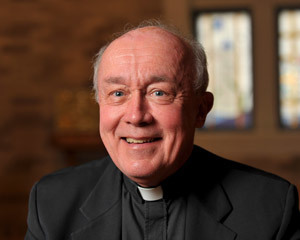About this book the publisher tells us:
What did early Christians believe about last things? Eschatology--religious doctrine about "last things"--is the hope of believing people that in the end the incompleteness of their present experience of God will be resolved, that loose ends will be tied up and wrongs made right. Rooted in a firm faith in Jesus crucified and risen, Christian eschatological hope has proved remarkably resilient, expecting the Lord to return very soon, and wavering little when the wait has been prolonged. This comprehensive survey, based on Christian texts in the Greek, Latin, Syriac, Coptic, and Armenian traditions from the second century through Gregory the Great and John of Damascus, is already well known to biblical scholars, church historians, theologians, and other students of the history of Christian thought. Appearing in an affordable, paperback edition, it is now available to students and to contemporary believers, whose hope it aims to nourish and stir up by acquainting them with the faith of their forebears in Christ.More recently, Daley joined a long list of people contributing volumes to Routledge's prestigious series on the Fathers when he published Gregory of Nazianzus. We had this book expertly reviewed in LOGOS: A Journal of Eastern Christian Studies several years ago, and the reviewer, John McGuckin, greatly praised Daley's work on Nazianzus. About this book Routledge tells us:
This book brings together a new, original survey of the significance of Gregory's life and work with translations of eight beautiful and profound orations. Gregory of Nazianzus portrays a vivid picture of a fascinating character of vital importance who deserves to be regarded as the first true Christian humanist.The eight orations, each representing a different aspect of his writing, are examined alongside a selection of his shorter poems in verse translation, letters, and a translation of Gregory's own will. Author Brian Daley offers extensive commentary on the works translated and an ample bibliography.
With an extensive introduction to Gregory's
life, thought and writings, and including detailed notes, this study
places Gregory in his correct historical context, and gives students
access to a deeper understanding of this fascinating figure from the
past.
Joining the Popular Patristics series published by St. Vladimir's Seminary Press, Daley translated a collection, On the Dormition of Mary: Early Patristic Homilies.
About this book the publisher says:
About this book we are told:
Joining the Popular Patristics series published by St. Vladimir's Seminary Press, Daley translated a collection, On the Dormition of Mary: Early Patristic Homilies.
About this book the publisher says:
Since the time of the early Church, Orthodox Christians have honored Mary, the Mother of God, with special solemnity on August 15. From the sixth century on, that celebration has been explicitly associated with her death, as the culmination of a human life uniquely "full of grace," uniquely involved in the Mystery of our salvation and transformation in Christ. This volume brings together the earliest attempts by Greek theologians and preachers to interpret Mary's Dormition, or 'falling asleep' in the Lord, in the light of the whole Paschal Mystery. The collection includes the sermon of Bishop John of Thessalonica, the earliest "official" retelling by an Orthodox bishop of the traditional narrative of Mary's entry into heavenly glory, and eleven other homilies from the seventh and eighth centuries, as well as a metrical translations of St John of Damascus' canon for the feast. All of the works gathered here represent profound and original efforts to integrate the celebration of Mary's death into the wider context of the Christian theology of redemption. Most of these works have never been translated into English before, and some are not available in any modern language. They offer Christian readers of all Churches an unparalleled new glimpse of Mary's central importance in Christian faith and spirituality: as the one in whom God's Word has become human, and in whom the community of Jesus' disciples sees the first full realization of its own share in the risen life of Christ. In the event and the liturgical celebration of her Dormition, these ancient preachers offer to us a kind of icon of Christian hope for the transfiguration of our common humanity, both at the time of our own "falling asleep" and at the end of history.A group of grateful former students and other colleagues recently collaborated on a Festschrift for Daley: In the Shadow of the Incarnation: Essays on Jesus Christ in the Early Church in Honor of Brian E. Daley, S.J.
About this book we are told:
The early centuries of the Christian church are widely regarded as the most decisive and influential for the formation of the church’s convictions about Jesus Christ. The essays in this volume offer readers a fresh orientation, and ground-breaking analyses, of the figure of Jesus in late antiquity. Written by historians and theologians who examine the thought of leading theologians, Latin and Greek, from the second through the seventh centuries, these essays honor and complement the scholarship of Brian E. Daley, Catherine F. Huisking Professor of Theology at the University of Notre Dame.While most discussions still confine patristic Christology to its conciliar trajectory, this volume broadens our horizons. The essays gathered here explore aspects of early Christology that cannot be narrowly confined to the path marked by the ecumenical councils. The contributors locate Jesus within a rich matrix of relationships: they explore how early Christian theologians connected Jesus Christ to their other doctrinal concerns about God, the gift of salvation, and the eschaton, and they articulate how convictions about Jesus Christ informed numerous practices, including discipleship, martyrdom, scriptural interpretation, and even the practice of thinking well about Christ.

No comments:
Post a Comment
Anonymous comments are never approved. Use your real name and say something intelligent.
Note: Only a member of this blog may post a comment.